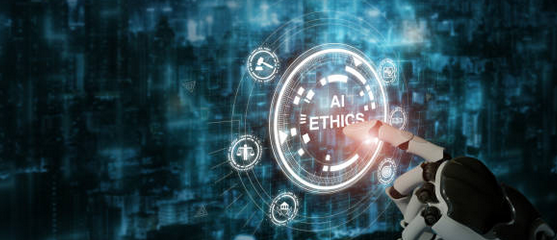Is it Ethical to Use AI to Recreate Deceased Actors?

Artificial intelligence (AI) has transformed many industries, including media and entertainment. However, its use in films has raised concerns, particularly regarding how AI can digitally bring deceased actors back to life on screen.
The most significant concern is if it is ethical for studios to use AI to re-imagine deceased actors? While some families of late actors are comfortable with the idea, others strongly oppose it. Let’s take a closer look at this issue and consider whether AI should be used to resurrect deceased actors.
How AI Recreates Deceased Actors
To understand the issue, it’s important to know that AI is not the only technology used to bring deceased actors back to life. While AI makes the process easier, other tools like deepfake technology, have also played a major role in these digital recreations.
AI combined with deepfake tools, allows filmmakers to visually “resurrect” actors from the past. These digital clones can be manipulated to speak and interact with living characters on screen. The recreated characters can range from simple 2D images to fully immersive 3D figures, which can be used in movies, video games, or even augmented reality experiences. This process gives actors a kind of “digital immortality,” allowing them to appear in future projects. Filmmakers also use a large number of photos and videos from the actor’s previous work which are processed and scanned into a digital format, making it possible to generate a lifelike version of the actor.
Alternatives to Using AI for Deceased Actors
An alternative approach to AI recreations would be to recast the role with another actor. This is the traditional solution when an actor cannot continue in their role. In some cases, filmmakers may choose to retire a character in honor of the deceased actor, as was done with Chadwick Boseman in Black Panther: Wakanda Forever. Instead of digitally recreating him, the filmmakers paid tribute to his character and his legacy, which I felt was a respectful and heartfelt decision.
My final 2 Cents
The use of AI to digitally recreate deceased actors presents both opportunities and challenges. The main issues revolve around consent, fairness, and respect for the actors’ legacies.
To address these concerns, intellectual property laws must be updated to ensure that digital representations of deceased actors are used ethically. Furthermore, estates must take a firm stance on the use of their loved ones’ likenesses. For example, Robin Williams’ estate has made it clear that no new digital performances will be created using his image or voice, unless they were part of previously recorded material.
Ultimately, while AI has the potential to bring back deceased actors to life on screen, it is important that this technology is used responsibly and with respect for the wishes of the actors and their families. Clear guidelines and stronger ethical standards are needed to protect the dignity of both the actor’s legacy and the creative integrity of the work. Without these protections, the line between tribute and exploitation could become dangerously blurred.



Comments ()